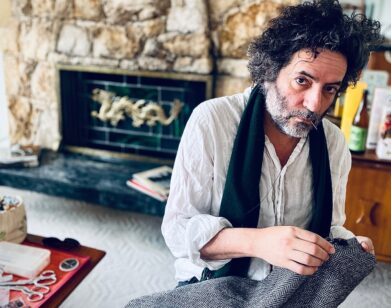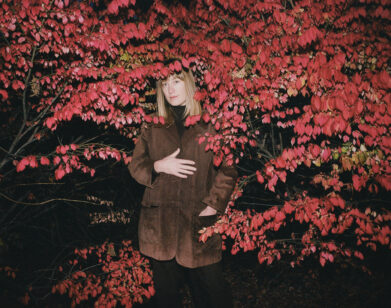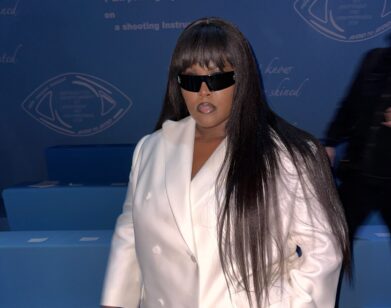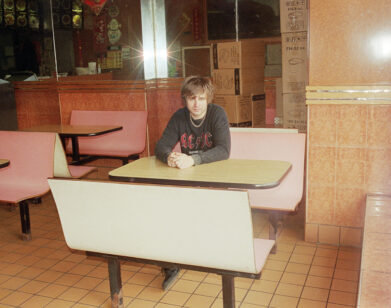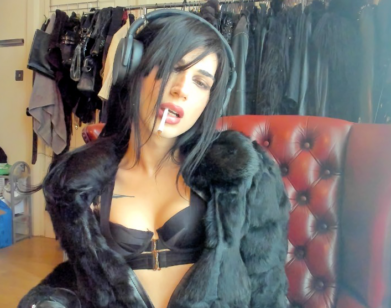LABEL MATES
Water From Your Eyes and Snail Mail on Getting Signed and Playing Live
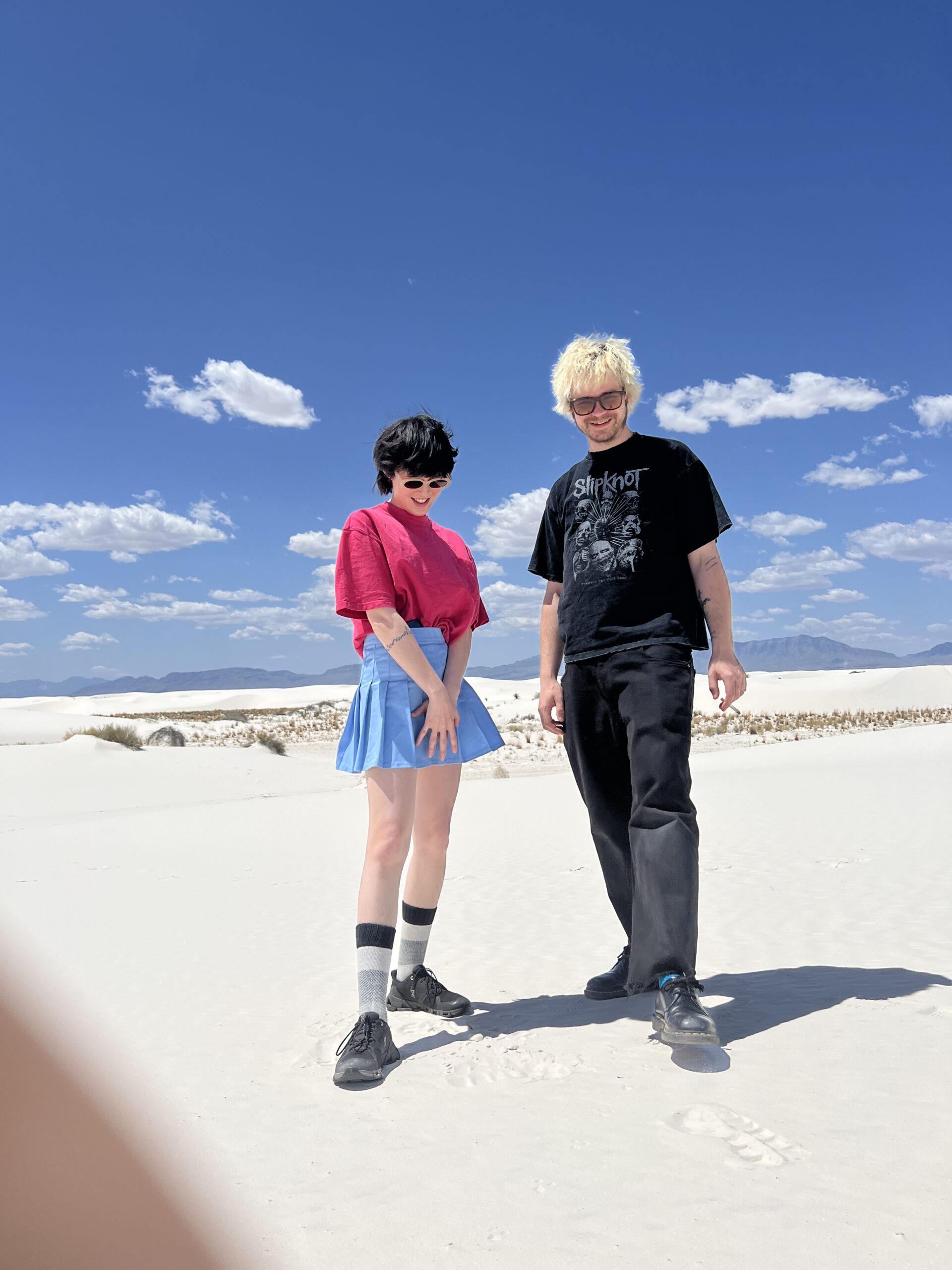
A band’s breakout can be highly subjective. For the Brooklyn art rock duo Water From Your Eyes, some might say it came with their last album, 2021’s Structure. But it’s hard to argue that their latest release, the thrilling and borderline experimental Everyone’s Crushed, marks a giant leap forward, both sonically and in terms of their public profile. Now signed with Matador Records, Rachel Brown and Nate Amos have been making music together since 2017, and based on the confidence and risk-taking that exudes from all nine tracks, it shows. Before a recent gig in front of their hometown crowd, Brown and Amos sat down with their label mate Snail Mail (born Lindsey Jordan) to discuss the strange position of being the opening act, working with labels, and the “TikTok-ification of live music.”
———
LINDSEY JORDAN: What’s up?
NATE AMOS: Hi.
JORDAN: How’s this tour been for y’all?
RACHEL BROWN: It’s been a lot of fun. Thank you for having us.
JORDAN: No, thank you for coming. It’s like getting to see you guys every night.
BROWN: So wait, how long have you been doing this?
JORDAN: Since 2015.
BROWN: We just graduated high school.
JORDAN: That’s crazy. I graduated in 2017 but started seriously touring in 2016. The first EP came out 2015 on Bandcamp and shit just started to pick up from there. We started playing more DIY shows and tours. We were on Sister Polygon until I turned 18, when we signed to Matador. I feel like I’ve known about you guys forever.
BROWN: I mean, we started in 2016 and that’s my entire adult life, pretty much.`
JORDAN: Has that been helpful or detrimental?
AMOS: We definitely had time to figure it out because there were no expectations at all until recently.
BROWN: Yeah. It was just a band. We were playing a lot in New York and that was what it was.
AMOS: We weren’t even really trying to get signed or anything.
JORDAN: That’s what’s up. I feel like everybody handles it differently. Does the label pressure ever get to you?
BROWN: Well, the thing is that we haven’t started an album.
AMOS: Since we got signed. There’s no real pressure on us to do anything differently. Maybe if they’re real drums, I’ll record in a studio instead of my bedroom.
BROWN: Nate does all the productions in his room, so everything’s been in-house.
JORDAN: There’s not a lot of people being like, “Do we like this?”
AMOS: Well, that was one of the reasons that we went with Matador. Out of the labels we talked to, they weren’t like, “I think there should be one more single.” We were like, “This is the album,” and they were like, “Great. Let’s do it.”
BROWN: Did they ask you for more singles?
JORDAN: No. I think it’s all about longevity and integrity and music rather than strategy and sales, which is part of why I signed with them. No one’s ever hit me up about a deadline and nobody thinks that I can make anything out of thin air, which is great because I haven’t written a song in two years.
BROWN: And you’ve been touring for two years.
JORDAN: Like a motherfucker. Alright. Recording or touring, if you could only have one.
AMOS: Recording. That’s the way it always was.
BROWN: I hate playing my own music live. I love writing music, though. I love recording the songs and then having them on my hard drive. That’s the part of music that brings me the most joy. Also, I don’t think seeing a band is about seeing them at their best. I feel like it’s about having the best time you can have at a show.
JORDAN: Totally.
BROWN: When I’m seeing a band, I’m like, “Awesome, they’re here.”
JORDAN: Me too. Have you guys noticed this TikTok-ification of live music after COVID? There’s all these kids that have never been to shows before sending hate messages like, “It doesn’t sound exactly like the record.” So many bands are faking it. Even the vocals are one track. They’re not even singing or playing the drums and that’s so normal at this point.
AMOS: People expect it to sound perfect and that’s why we do the backing track thing.
BROWN: There’s something so human about imperfection that makes it so much more endearing to watch.
JORDAN: Snail Mail can play a very sloppy set sometimes. Sometimes it’s like we have never practiced. And I’m like, “Does Pavement get away with it because they’re slacker rock? Do you have to be slacker rock or can you just play a bad set and it’s cool?”
BROWN: Dude, I mess up all the time. It’s like when people are watching professional sports, being like, “You can do better.” But you don’t have 30 thousand people watching you. Your body has been playing this game almost every day for years. You’re injured in some way or another. Honestly, sometimes when we’ve opened for bands, we’ve gotten messages saying, “This is the worst thing we’ve ever seen.” What’d that person say?
AMOS: “Call it a day, mate. You’re the worst band I’ve ever seen in my entire life.”
BROWN: I love getting treated like that. Somebody went on our Instagram like, “How do you even call this music?” It was funny because it was on the Spoon and Interpol tour. Those are two really beloved bands. Specifically the show we played with just Interpol, some people thought Spoon was going to be there, so they were not only upset that Spoon didn’t play but were also like, “And then you had this piece of shit band.”
JORDAN: Opening for legacy rock bands, people are mad that you’re playing while they’re getting their chicken tenders, which is totally valid. But music is playing and you don’t have to be mad. The seats are assigned. You can leave.
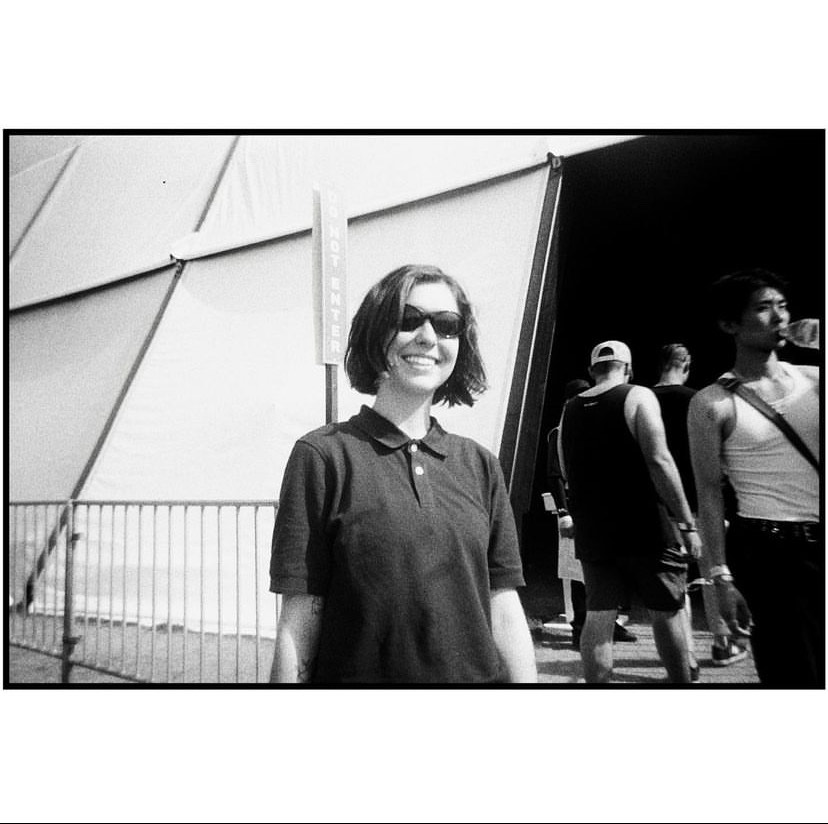
AMOS: For a long time, if you Googled “Water From Your Eyes Reddit,” the first handful of things that would come up were people on the Interpol subreddit talking about how horrible we were. One guy was like, “Luckily I was able to escape to the rooftop bar and sip my fruity cocktail while the sun set.” And I was like, “You’re dealing with it the right way.” The defenders are almost worse though. Those bother me more. I’d rather just let the hate fester.
JORDAN: If something goes wrong and it’s silent for a long time, and when you resume, people are like, “Woo!” You literally feel like a charity case. I wish they would boo instead, honestly. Because I feel like a baby.
BROWN: People cheer for anything on stage. It’s such a weird automatic response.
JORDAN: I hate the idea that maybe people think that they need to redeem me.
BROWN: I don’t think it’s that.
AMOS: People love tension and release.
BROWN: I do read comments, though. I get emails sometimes, I get notifications. But I can move on from criticism so much quicker. I also feel like you have a difficult position because you make very personal music. It’s like your life.
JORDAN: It’s just what I feel like writing about. We got where we were because topically people related to it. But there’s no part of me that’s as self-important as you think. I wonder what it is about personal songwriting that makes people so upset. I’m literally just saying everything wrong with me.
BROWN: It’s very prominent in music right now so people are projecting that every vulnerable and personal song is a cash grab. It’s actually therapeutic.
JORDAN: Yeah. It’s like, do you write eloquently in your journal? I don’t. That was just me plainly writing out my feelings to feel better. I don’t want to see the response and I don’t want to get in trouble for being so raw myself. I’m doing something for myself emotionally by matching music with words that feel like they’re connected, which I think is a really cool thing.
BROWN: They just need to go listen to Nebraska by Bruce Springsteen. Everything’s going to be okay.
JORDAN: I feel like there’s been a switch over time with Water From Your Eyes. Is it conscious as an evolution?
AMOS: Water From Your Eyes is this weird little orb that’s floating around and we’re just kind of following it. There’s no intention, and it’s definitely changing.
BROWN: I’ve known Nate for a long time and he’s been on an insane musical journey. So Water From Your Eyes is a culmination of, not to toot your horn, but—
JORDAN: Toot it.
BROWN: He’s made so much music and anti-music that he’s somehow found the spaces and cracks in everything that nobody else has seemed to find yet. It’s like he’s exploring these caverns.
AMOS: I do love caves.
BROWN: To some degree, no matter what kind of music it is, there are things that unite them. So there’s a network of underground caves of the things that music has in common that you’re just kind of blindly walking through.
AMOS: I walked into a cave and I’m trying to find the way.
BROWN: How do you feel about genres?
JORDAN: From the EP to the albums, the only thing I wanted to do was imitate the things I was enjoying at the time. When I made “Valentine,” I was loving pop and R&B so much. I just wanted to see if it was something I could do, but now there’s an aftermath where people are like, “What’s next? Is it an evolution?” And I kind of wish there didn’t have to be any path because I’m ready to go all the way back to guitar music. It threw us in a direction that made a lot of people hate us.
BROWN: Do you think it’s possible for you to write music without thinking about how it will be received?
JORDAN: Maybe not at this point. I try really hard. After reading so many reviews, everything lives in my head. But if I had never heard a review of Lush, I think that would probably be best for my art making. You lose your intuition as soon as you start asking for opinions. What do you think?
AMOS: I only begin to have an understanding of what our music is months after it’s done. That’s never part of the process. Usually, it’s just messing around and axing 9 out of 10 things until we get something cool.
JORDAN: Do you ever have a hard time distinguishing between instant gratification and something that will stick in a good way?
AMOS: Usually, the songs are written slowly enough that if it’s too instant, I’ll lose interest before it’s really made.
BROWN: I went to school for film and screenwriting, and the process of making a film takes forever from beginning to end. Before, I wanted to just write a song and be done with it, but now I want to put my time and energy into making things that maybe won’t bring me instant gratification, but will be fulfilling down the line.
JORDAN: Knowing that you’re about to sit down and work on something that’s going to get trashed and revised a million times is discouraging in itself.
BROWN: I haven’t started on anything.
JORDAN: I know. Me neither, dude. I mean, I have riffs, but yeah.
BROWN: It’s hard. Granted, I was 23 when the pandemic happened. My mindset on things was so drastically different.
JORDAN: Yeah. The lows are part of it, and if you don’t have them, maybe you’re not being as constructive as you need to. What do you feel really changed post-COVID?
BROWN: I don’t want to just fuck around as much anymore. I know exactly what I don’t want to be doing so much more clearly. I don’t want to work a job and do mundane shit to make somebody else money. I would do anything in my power to not do that. I don’t want to spend time with people who aren’t bringing growth into the conversation. I want to feel like I’m learning things about myself, about the universe, and about being a human being. I like going out, but I don’t want to wait in line.
JORDAN: That’s a fact. I won’t wait in line either.
BROWN: I feel like the value of time became a lot more apparent during COVID. Like, why are we here together? We can both be sitting quietly.
JORDAN: Totally. Or talking to ourselves in the mirror. My life thinned out a lot since COVID because I have so much more appreciation for the people in my life that are good listeners and talk about real stuff rather than just using me as a talking board.
BROWN: I feel like it’s really important to have people in your life you’re genuinely invested in and vice versa.
AMOS: People who grow and encourage growth.
BROWN: Despite what it means for them.
JORDAN: Underrated. I think we killed this.
AMOS: Oh, hell yeah.
JORDAN: Good shit, you guys.
BROWN: Bye everybody.


